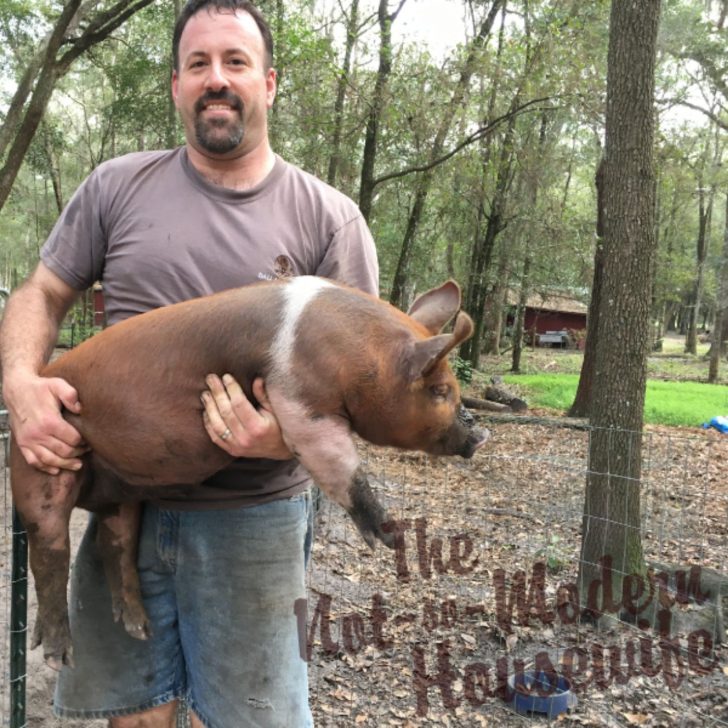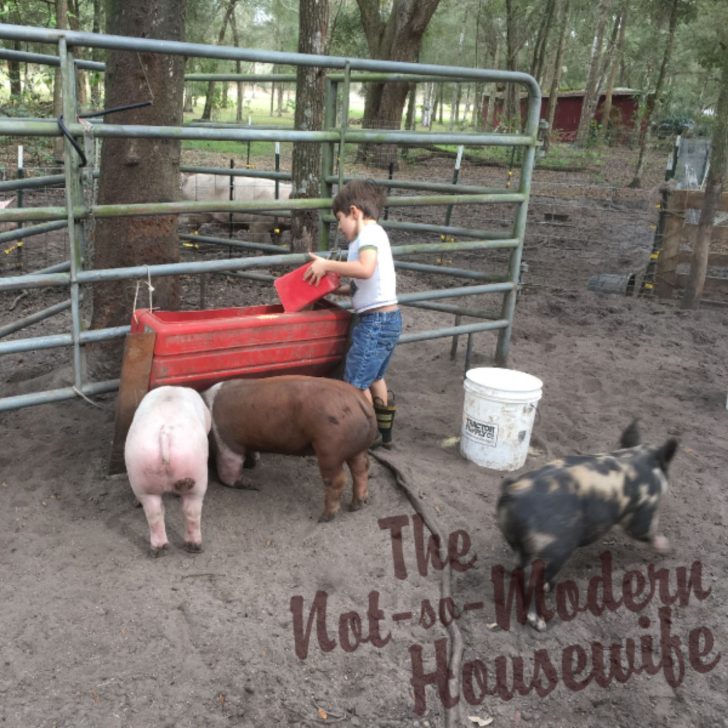Caring for a sick pig can be a challenging task, but with the right knowledge and approach, you can ensure your pig’s quick recovery and overall well-being. In this guide, we’ll explore proven strategies that every pig owner should know. From recognizing early signs of illness to administering proper care and medications, these tips are designed to help you navigate the complexities of pig health with confidence.
Understanding the common ailments that affect pigs and knowing how to address them promptly can make a significant difference. This article will provide you with actionable advice, expert recommendations, and natural remedies to support your sick pig. Whether you’re a seasoned farmer or a new pig owner, these essential tips will empower you to take proactive steps in maintaining the health and happiness of your pigs. Let’s dive in and explore how you can become an effective caretaker for your ailing pig.
Table of Contents
Pin this article for later:

Recognizing Illness in Your Sick Pig
Observing your piglet and learning how it behaves normally is the first step to ensuring you keep him or her healthy. Spending time each day observing individual pigs closely is essential for early detection of sickness and for understanding the environment surrounding the pigs.
Piglets are a lot like puppies. They will take frequent naps, but they also love to play and wrestle. They LOVE to eat. Some key signs that your piglet may be sick include:
- Loss of appetite
- Acting lethargic (sleeping more than usual)
- Weight loss
- Red, irritated skin
- Diarrhea and/or vomiting
So how can you help your piglet if they are experiencing some or all of these symptoms?

Supportive Care
The first step in caring for your sick pig is to provide proper care by treating their symptoms and helping them feel better. This will include separating from any other healthy pigs and piglets, providing warmth, and providing fluids and nutrients. Good nutrition and easy access to food and water are essential for the recovery of the sick piglet. Fluids and nutrients may need to be given with a syringe if the piglet isn’t eating or drinking.
There are also injectable vitamins available such as B Complex and A, D, & E. These will help to provide energy and may encourage the piglet to eat.
Common supplements that are available:
- Iron – Iron is required for the synthesis of hemoglobin that transports oxygen in red blood cells, myoglobin in muscle tissue, and iron-containing enzymes. Piglets are commonly deficient in iron until they start eating grain. Some piglets may get iron from the soil if it is iron rich. It can be given orally or through injection.
- B Complex – B Complex vitamins aid in energy production, digestive health, and neurological development. In some cases, high doses of a specific B vitamin may be needed to treat a disease, but B complex is a good first line of defense, especially when a piglet has gone off of feed and is becoming vitamin deficient. High dosage B vitamins are available from your veterinarian.
- A & D Vitamins – These fat soluble vitamins are essential for coordination and skeletal muscular health. However, because they are fat soluble, they can build up in the body and create an excess and so should only be given sparingly. They can be given if the B Complex vitamins are not improving coordination and if the piglet is not receiving the vitamins through other sources like food.
More information about vitamins and minerals essential to pig health can be found: https://www.asi.k-state.edu/extension/swine/swinenutritionguide/general_nutrition_principles/traceminerals.html
If skin irritation is also present, a sulfur based cream can be applied to help ease the symptoms. Nu-Stock works very well to relieve irritated skin, and can also be used to heal a variety of common skin ailments. You’ll also want to move your pig out of the sun to avoid sunburns further damaging the skin.
Test and Treat Sick Pigs for Parasites
Intestinal parasites are very common in pigs, and are a common source of digestive distress.
Before throwing a lot of time and money at treating a variety of diseases, you should first see if your vet will run a fecal sample to test for parasites. Many veterinarians will run a fecal sample without charging for an office visit, but it doesn’t hurt to call and ask first. It also helps if you have a relationship with your veterinarian ahead of time.
Some dog and cat vets can also run fecal samples for livestock, although they may not be as familiar with treatment options.
If you can not have a fecal egg count run locally, you can mail a fecal sample to Mid America Agricultural Research. The fecals are cheaper than most veterinarians, but you’ll have to pay for shipping and insulated packaging. It works best if you’re sending multiple samples as part of a preventative routine. Turn around time is also reasonable with most test results being read the same week.

Offer a Variety of Food for Good Nutrition
It’s important to continue trying to get food and water in your piglet. You could also try giving sports drinks via a syringe.
Does your piglet have a favorite food? Tempt it to eat whatever you can. Food is fuel and will help the piglet retain energy and fight off infection. Providing good nutrition is crucial for the piglet’s recovery.
Should You Give Antibiotics?
The decision to give injectable antibiotics is a tough one and should not be taken lightly. On one hand, even viral infections can result in bacterial secondary infections. Yet on the other hand, giving antibiotics unnecessarily can result in resistant bacteria that will be more difficult to treat next time. Factors to consider when deciding to use antibiotics:
- Have you successfully treated similar symptoms with antibiotics in the past?
- Do the symptoms match any common bacterial infections in pigs?
- Have you exhausted other options?
When in doubt, consult a veterinarian. If this is a pig that you are raising for meat that you may potentially sell, you are required to have a prescription from a veterinarian before administering any medications. Proper withdraw times must also be observed before the treated pig is butchered.
When to Consult the Vet
Any time you feel that a disease or injury is beyond your scope to treat, it’s a good idea to involve a veterinarian.
Swine vets are not common in many parts of the country, and good ones are worth their weight in gold, so you should research who to use and develop a relationship with them before an emergency arises.
If your piglet has gone more than a day or two without eating, or is not showing signs of improvement, it is important to call the vet. The vet visit is typically less expensive than the cost to replace the pig.

Preventing Disease
As with any animal, it is often far easier to prevent disease than it is to treat it. Here are some easy steps you can take to help ensure your piglet remains healthy:
- Provide a clean living area – while pigs have a well known affinity for mud, they also need an area that is dry and clean to maintain their health. A feeding and watering area that is clean, dry, and shaded will help avoid issues with parasites and sunburn. It will also help avoid some infections that can be contracted through the soil or standing water.
- Provide enough space – An ideal living area will be large enough for a separate restroom area since pigs prefer to defecate away from their food and water sources. A larger pen will also be easier to keep clean and dry and will produce fewer odors. It is also important to use a hospital pen for sick animals to ensure they receive proper care and do not infect healthy pigs.
- Use a vaccination schedule – Piglets can be very susceptible to disease, and a vaccination schedule is the easiest way to prevent illness and death.
- If you are breeding your pigs, consult with your veterinarian about a vaccination schedule that is appropriate for your area.
- If you are purchasing a piglet from a breeder, consider purchasing one that has been properly vaccinated. Most vaccines are given before the piglet reaches 6 weeks of age. This includes an iron shot to prevent anemia.
- Provide a balanced diet – while it is true that pigs will eat all of your kitchen scraps, these do not provide a balanced diet and can lead to vitamin and mineral deficiencies. A commercial feed available from your local store or feed mill is the best way to provide a balanced diet, with scraps as a treat.
- Provide fresh, clean water – Clean water is also important, although it can be challenging since pigs want to lay in most water troughs. The best way to ensure your piglet’s water stays clean is to install a stainless steel pig water nipple. These are difficult for the pig to destroy and protect the water supply from contamination.
Observing changes in behavior and temperament, such as lying apart from other pigs and having less social interactions with pen mates, can help identify sick animals early and ensure they receive prompt treatment.
Pigs are very hardy animals and have an amazing ability to heal from disease and injury. With some preventative and supportive care, you will find that they are quite easy to care for. You’ll soon understand Why Every Rural Homestead Should Have a Pig.
Final Thoughts
Caring for a sick piglet is a crucial aspect of maintaining a healthy homestead. By recognizing early signs of illness and providing timely, supportive care, you can ensure your piglets recover quickly and grow into strong, healthy pigs. Remember to always consult with a veterinarian for persistent or severe symptoms and to follow their recommendations closely.
Maintaining a clean and stress-free environment, along with proper nutrition and regular health checks, can prevent many common piglet illnesses. By being proactive and attentive, you create a nurturing space where your piglets can thrive. Your dedication to their well-being not only enhances their quality of life but also strengthens your homesteading practices, reflecting your commitment to sustainable and humane animal husbandry.
